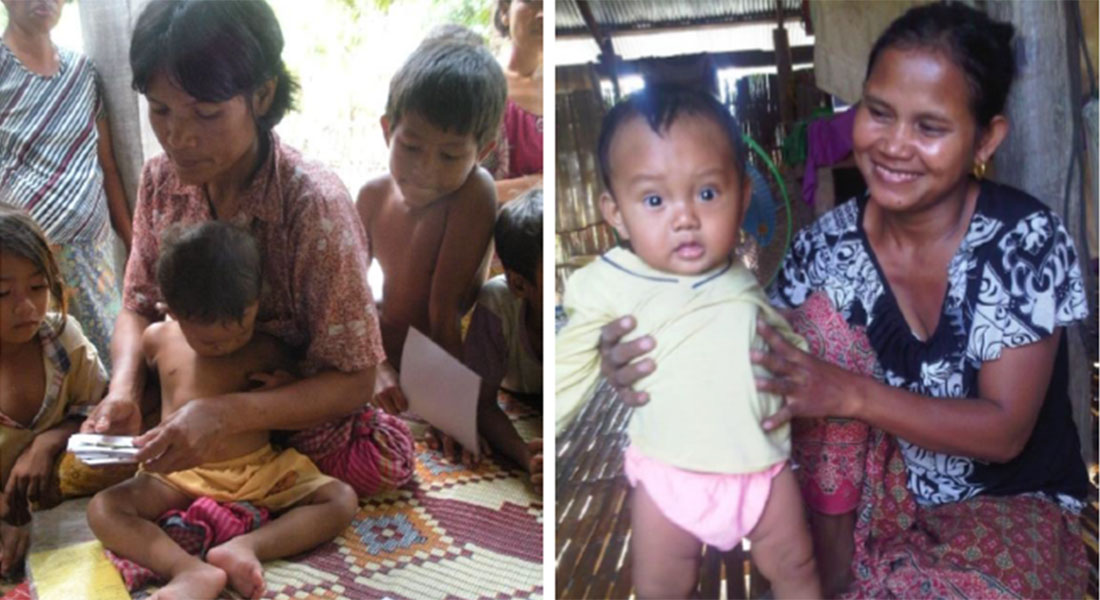PhD defence: Freshwater fish to improve nutrition of infants and young children in Cambodia
Species diversity, impact on fatty acid status and market potential

Mulia Nurhasan
PhD thesis
Cambodia has rich freshwater resources described as the most productive in the world. Despite the rich aquatic food resources, Cambodia ranks among the most food-insecure countries in the world with high prevalence of child malnutrition.
The main objective of this thesis is to explore the potential of freshwater fish-based for the nutrition of infants and young children in Cambodia, with focus on the species diversity, the impact on blood fatty acid status, and the caretakers’ willingness to pay (WTP) for processed complementary food products in packages (PCFP).
The research combines results from three field-based studies in Cambodia: 1) A cross-sectional study of diversity of fish species and other aquatic animal (OAA) in mother’s and children’s diets (n=100 mothers). 2) A randomized controlled trial (RCT) in children age 6-15 months
assessing the impact on fatty acid status of a daily supplement of a novel PCFP with freshwater fish (n=308); and 3) A cross-sectional field experiment assessing the preferences and the WTP for PCF (n=520 caretakers).
The mothers demonstrated advanced knowledge of aquatic foods recognizing on average 113 fish species and 14 OAA species available in their surrounding aquatic environment, and consuming 69 different species the previous rainy season. The diversity in children’s diets were much less diverse.
The RCT study found no differences in blood n-3 long-chained polyunsaturated fatty acids (LC PUFA) between the fish-based and the non-fish-based groups. A stratified sample of children no longer breastfed at 15 months of age indicated that the effect of the intervention foods was modified by positive impact of breastfeeding on LC PUFA. The WTP analysis showed that rural participants were willing to pay more than participants in rural settings for fish-based PCFP.
Various brands of global and local PCFP products were available on the market. Caretakers were familiar with those brands but only few had ever consumed them. Most participants considered homemade porridge healthier, more practical, and preferred by children.
In conclusion, fish-based PCF is potentially a feasible nutrition intervention because it can improve fish consumption in children, and potentially improve fatty acid status, especially in non-breastfed children.
Download Table of contents; List of papers; Summary in English; Dansk Resume.
2022, 176 pages.
Time
22 April 2022, 13:00
Place
Aud. A2-70.02, Thorvaldsensvej 40, ground floor.
Opponents
Associated Professor Benedikte Grenov (chair), Department of Nutrition, Exercise and Sports, University of Copenhagen, Denmark.
Associate Scientist Andrew Thorne-Lyman, Johns Hopkins Bloomberg School of Public Health, Johns Hopkins University, USA.
Associated Professor Elaine Ferguson, Faculty of Epidemiology and Population Health, London School of Hygiene and Tropical Medicine, UK.
Main supervisor
Associated Professor Nanna Roos, Department of Nutrition, Exercise, and Sports, Faculty of Science, University of Copenhagen, Denmark.
Co-supervisor
Senior Researcher Frank Wieringa, Institut de Recherche pour le Développement (IRD), Montpellier, France.
Associated Professor Lotte Lauritzen, Department of Nutrition, Exercise, and Sports, Faculty of Science, University of Copenhagen, Denmark.
Professor Søren Bøye Olsen, Department of Food and Resource Economics (IFRO), University of Copenhagen, Denmark.
The thesis is available for inspection at the library, Nørre Allé 51, DK-2200 Copenhagen N.
